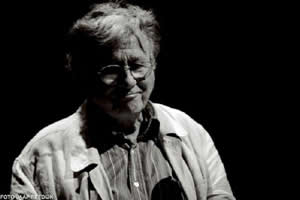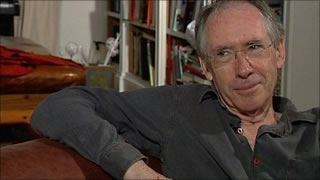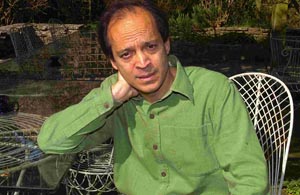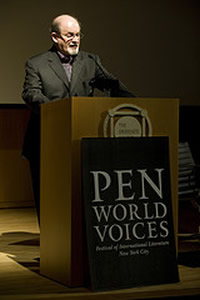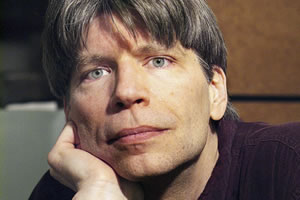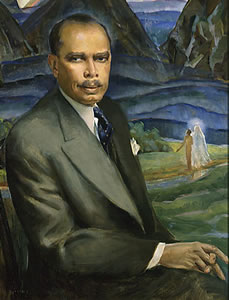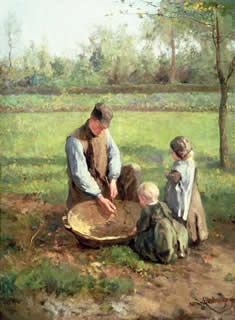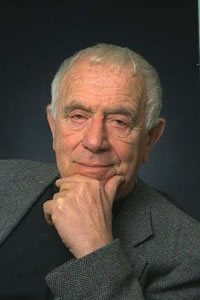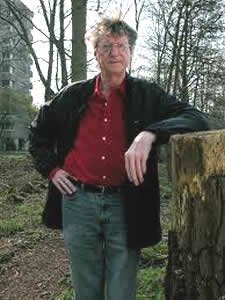De Nederlandse schrijver Nescio (pseudoniem van Jan Hendrik Frederik Grönloh) werd geboren in Amsterdam op 22 juni 1882. Zie ook alle tags voor Nescio op dit blog.
Uit: Amsterdam Stories (The Freeloader, De Uitvreter, vertaald door Damion Searls)
„Except for the man who thought Sarphatistraat was the most beautiful place in Europe, I’ve never met anyone more peculiar than the freeloader.
The freeloader you found lying in your bed with his dirty shoes on when you came home late; the freeloader who smoked your cigars and filled his pipe with your tobacco and burned your coal and peered into your cupboards and borrowed your money and wore out your shoes and took your coat when he had to go home in the rain. The freeloader who always ordered in someone else’s name, who sat and drank jenever like a prince at the outdoor tables of the Hollandais on other people’s tabs, who borrowed umbrellas and never brought them back, who heated Bavink’s secondhand stove until it cracked, who wore his brother’s double collars and loaned out Appi’s books, and took trips abroad whenever he’d hit up his old man for money again, and wore suits he never paid for.
His first name was Japi. I never knew his last name. Bavink showed up with him when he came back from Veere.
All summer long Bavink had been painting in Zeeland and it was in Veere that he saw Japi for the first time. Japi was just sitting there. Bavink wondered once or twice: Now what kind of guy is that? No one knew. He was always sitting by the water somewhere, just sitring, hour after hour, not moving. At noon and at six he went inside for an hour, to eat; the rest of the day he sat. That lasted about three weeks, then Bavink didn’t see him anymore.
A couple of days later, Bavink was coming back from Rotterdam. Every now and then Bavink needed to have a lot of people around; he tromped along the Rotterdam harbor for a few days, then he’d had enough. On board the ship from Numansdorp to de Zijpe, there was Japi again, sitting. A stiff, cold wind was blowing pretty hard that morning and there were whitecaps on the water. Every now and then spray splashed up over the railing at the bow of the ship. The glass doors on the foredeck were closed; there was no one at the bow. Just Japi, peering out over the rail and getting completely drenched. “Look at that,” Bavink thought, “if it isn’t that same guy.” He went and stood next to him. The boat pitched and rolled. Japi sat on his little bench, held on tight to his cap, and let himself get soaked. This lasted quite a while, until he noticed that someone was standing next to him. “Nice weather we’re having,”
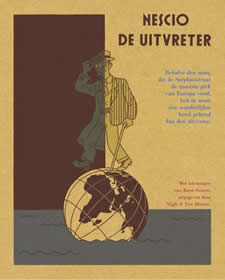
Nescio (22 juni 1882 – 25 juli 1961)
Boekomslag door Joost Swarte, 2006

